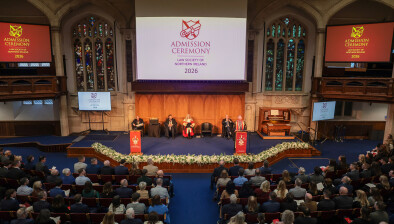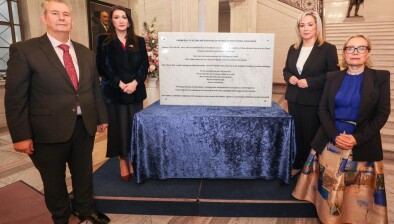NI Court of Appeal: Man who sawed off partner’s head fails appeal alleging ineffective counsel

Northern Ireland’s Court of Appeal has rejected 12 separate grounds of appeal by a murderer who claimed his counsel were dishonest, lacking integrity, and encouraged him to perjure himself.

About this case:
- Citation:[2022] NICA 40
- Judgment:
- Court:NI Court of Appeal
- Judge:Lord Justice Treacy
The appellant was unanimously convicted by a jury of murdering his girlfriend Anita Downey in the early hours of 20 January 2017. His appeal was against this conviction.
Background
Anita Downey was 51 years old when she was murdered. She had been in a relationship with the appellant for approximately three years, and they were engaged prior to her death.
The appellant’s trial statement claimed that on the night of her death, she had planned to have the appellant murdered. He stated that there was a struggle, and the deceased accidentally slit her own throat with a kitchen knife during a struggle.
The appellant’s son testified that he heard his father shout “I’m going to beat you up”, and ran downstairs, where he observed his father astride the victim, punching her.
He later saw his father grab a kitchen knife and was told to go upstairs. He returned when he heard the deceased screaming for help, and then observed his father holding her head with his left hand and “sawing” at the left side of her neck with the kitchen knife in his right hand.
His son called the police, stating: “My dad has just sliced his girlfriend’s throat.” The appellant told the first responding officers that he wanted them to shoot him.
During the trial the jury also heard evidence that the appellant had a significant criminal record, which included an incident in 2003 where the appellant pulled a 10-inch kitchen knife on a female partner and threatened her.
The appellant’s legal team
When faced with this evidence at trial, the appellant attempted to “frustrate and derail the trial process”. He invented conflict with his lawyers and dismissed many of them.
The Court of Appeal agreed with the trial court in finding that he was seeking to make himself “unrepresentable”.
When asked by his counsel to explain any problems with his relationship with the deceased, the appellant stated: “Actually I don’t know how to approach this […] you’ve asked me to lie here to this court”.
The appellant then said he had repeatedly complained about his representation and that he would not answer any more questions from his counsel.
The court argued that this “spectacle” of giving evidence and then “dramatically refusing to answer questions and publicly accusing his own senior counsel of having previously asked him to lie” had all the hallmarks of a planned attempt to sabotage his criminal trial.
The appellant claimed Mr O’Rourke QC simply refused to represent him and that Mr McDonald QC hadn’t read the papers and wasn’t prepared for the trial. He then claimed that at trial that Mr Greene QC tried to get him to perjure himself.
After his conviction, he instructed more lawyers, until they were also dismissed, with the appellant making allegations about their professional integrity and honesty.
However, the appellant refused to allow the court to hear responses from his lawyers by refusing to waive his legal professional privilege.
Evidence also contradicted the appellant’s assertions, as it was quite clear that it was the appellant who dismissed his solicitors and counsel. He claimed that he was unhappy and that his instructions were being ignored.
The court found that the only plausible explanation to not waive his legal professional privilege was because he knew his allegations would be exposed as untrue and undermine his appeal.
Grounds of appeal
The appellant challenged his previous trial on several grounds, including the exhibits presented, the evidence tested and the witnesses. The appellant complained that the clothing the deceased was wearing had not been tested before being ultimately destroyed by police.
The appellant complained that Mr Greene failed to get “expert evidence” on these items, and that he had witnesses who could have contradicted other witnesses’ evidence. However, the appellant refused to allow the court to hear any explanation about these issues from his counsel. The court did not afford any weight to these claims.
The appeal had 12 separate grounds, one of which was that the appellant was denied his right to make a closing speech at trial. However, in the circumstances of the case, the court found this did not render the trial unfair or imperil the safety of the conviction.
The court considered that the loss of the right to make a closing speech, in the circumstances, was a defect which did not interfere with the appellant’s ability to defend himself.
The appellant suffered no real prejudice as a consequence of this, and the court found that the trial court’s decision did not impact the safety of the conviction, not least of all because of the overwhelming evidence of guilt.
Conclusion
The Court of Appeal agreed that the appellant had repeatedly dismissed his representatives to frustrate, subvert and derail the trial process. The court stated:
“We cannot permit defendants to engage in this type of conduct by abusing the protections afforded to those facing criminal trial. There can be no unfairness caused to the appellant in the way that he received state funded representation of the highest calibre prior to, and during, his trial and conviction for the murder of Anita Downey.”
Having regard to the nature of the breach and the overwhelming evidence, there could be no question of a miscarriage of justice or the harbouring of any doubts as to the safety of the conviction.
The court rejected all of the grounds of appeal.









